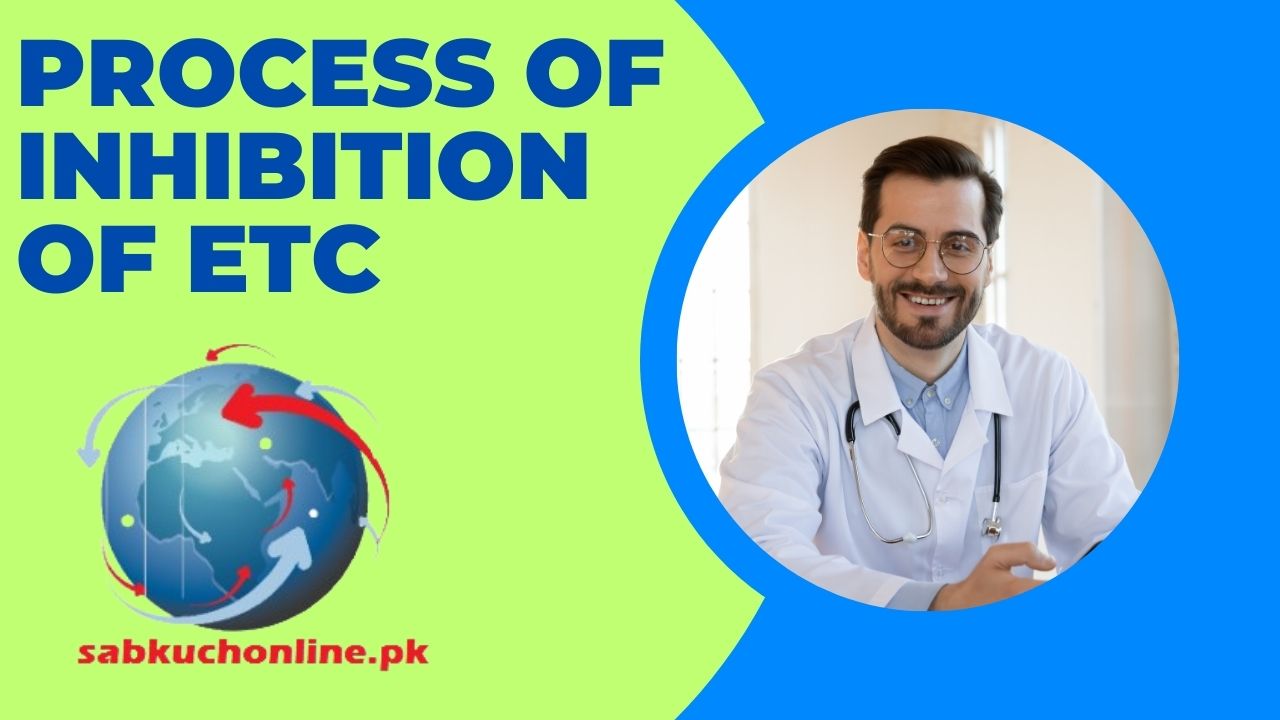The electron transport chain (ETC) can be inhibited by various substances, disrupting the normal flow of electrons and impacting ATP synthesis. Inhibition of the ETC can occur at different points within the chain. Here’s an explanation of the process of ETC inhibition:
Types of ETC Inhibitors:
- Complex I Inhibitors:
- Example: Rotenone
- Mechanism: Binds to Complex I and inhibits the transfer of electrons from NADH to ubiquinone.
- Consequence: Halts the flow of electrons from NADH, disrupting proton pumping and ATP synthesis.
- Complex III Inhibitors:
- Example: Antimycin A
- Mechanism: Binds to Complex III and prevents the transfer of electrons from ubiquinol to cytochrome c.
- Consequence: Blocks the flow of electrons to cytochrome c, disrupting proton pumping and ATP synthesis.
- Complex IV Inhibitors:
- Example: Cyanide, carbon monoxide, azide
- Mechanism: Bind to and inhibit Complex IV (cytochrome c oxidase), preventing the reduction of oxygen to water.
- Consequence: Stops the final step of electron transfer, blocking ATP synthesis and leading to the accumulation of electrons.
Uncoupling Agents:
- Examples: Dinitrophenol (DNP), thermogenin (found in brown adipose tissue)
- Mechanism: Allow protons to leak back into the mitochondrial matrix without passing through ATP synthase.
- Consequence: Proton leakage dissipates the proton gradient, preventing the coupling of electron transport to ATP synthesis. This uncoupling leads to the generation of heat but reduces ATP production.
Impact of ETC Inhibition:
- Decreased Proton Pumping:
- Inhibition at any point in the ETC disrupts the normal flow of electrons, leading to a decrease in proton pumping across the inner mitochondrial membrane.
- Proton Gradient Disruption:
- A reduced proton gradient means there is less potential energy available for ATP synthesis through chemiosmosis.
- ATP Synthesis Reduction:
- Inhibition ultimately leads to a reduction in ATP synthesis, impacting the cell’s energy production.
- Accumulation of Electron Carriers:
- Inhibition can lead to the accumulation of reduced electron carriers (NADH and FADH₂), potentially causing a backup in the upstream metabolic pathways.
- Cellular Consequences:
- Cellular functions that rely on ATP, such as active transport and muscle contraction, may be impaired.
- Cellular Stress Responses:
- Severe ETC inhibition or disruption of ATP production can trigger cellular stress responses and, in some cases, apoptosis (programmed cell death).
Understanding the process of ETC inhibition is crucial for comprehending how certain substances or conditions affect cellular respiration and energy metabolism. These inhibitors are often used in research to study cellular processes, and some can be toxic if present in high concentrations.
